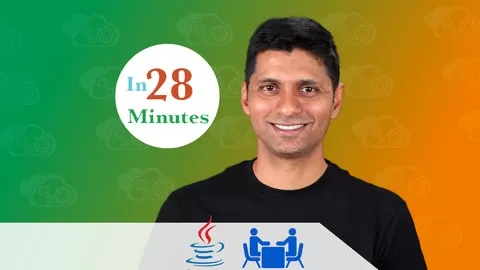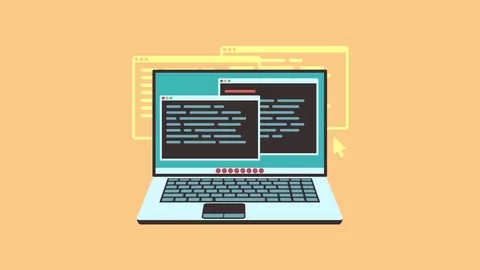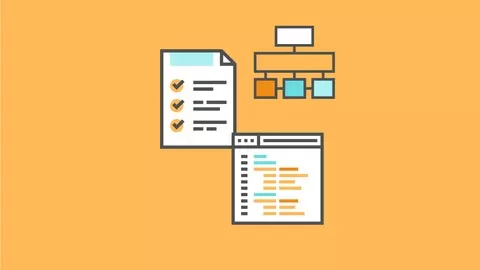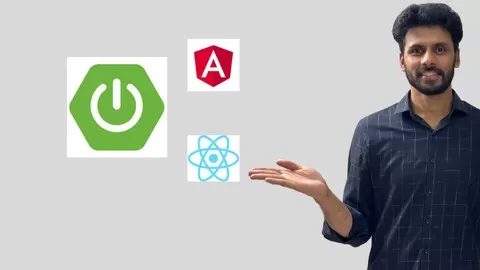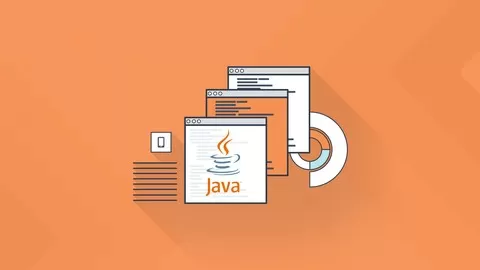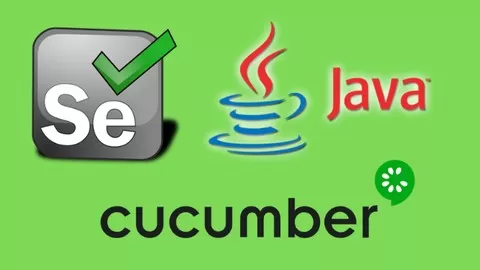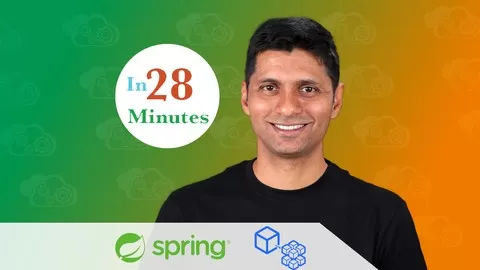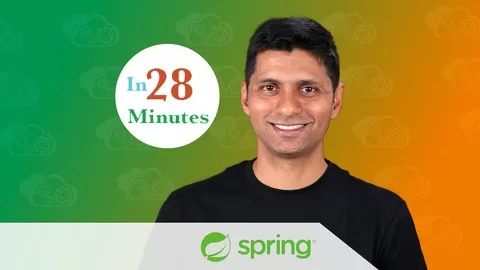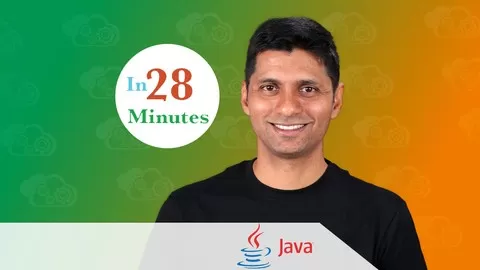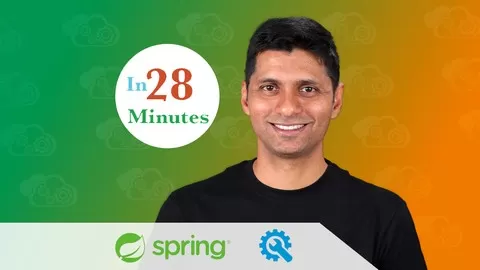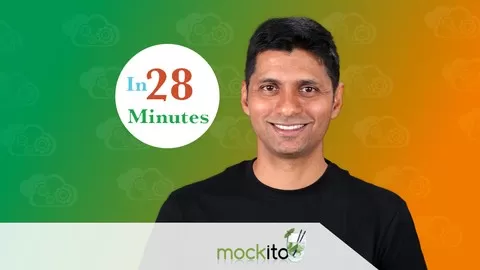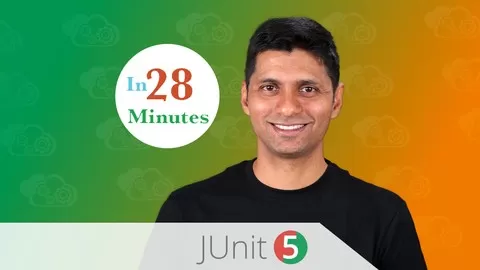How about Quickly Revising all the Important Java Concepts in about 6 Hours before an interview?
Preparing for Java Interview is tricky. You would need to get a good understanding of new features and revise concepts you used in your preparation. This course helps you Prepare for Java Interview with hands-on code examples covering 200+ Java Interview Questions and Answers on varied range of topics listed below.
WHAT OUR LEARNERS ARE SAYING:
5 STARS – This course is perfect for those people that have been for some time without using some features of Java and need to refresh those knowledge
5 STARS – The best Java interview guide on Udemy
5 STARS – Awesome, this is how the videos should be. First, I was thinking couple of time to purchase this, but fortunately I am happy that, I have purchased this. I am enjoying each and every part of the session
5 STARS – Great course to freshen up your knowledge and prepare for interviews
5 STARS – The best java interview guide you can get across the internet.
COURSE HIGHLIGHTS:
Java Platform
•1 . Why is Java so popular?
•2 . What is platform independence?
•3 . What is bytecode?
•4 . Compare JDK vs JVM vs JRE
•5 . What are the important differences between C++ and Java?
•6 . What is the role for a classloader in Java?
Wrapper Classes
•7 . What are Wrapper classes?
•8 . Why do we need Wrapper classes in Java?
•9 . What are the different ways of creating Wrapper class instances?
•10 . What are differences in the two ways of creating Wrapper classes?
•11 . What is auto boxing?
•12 . What are the advantages of auto boxing?
•13 . What is casting?
•14 . What is implicit casting?
•15 . What is explicit casting?
Strings
•16 . Are all String’s immutable?
•17 . Where are String values stored in memory?
•18 . Why should you be careful about String concatenation(+) operator in loops?
•19 . How do you solve above problem?
•20 . What are differences between String and StringBuffer?
•21 . What are differences between StringBuilder and StringBuffer?
•22 . Can you give examples of different utility methods in String class?
Object oriented programming basics
•23 . What is a class?
•24 . What is an object?
•25 . What is state of an object?
•26 . What is behavior of an object?
•27 . What is the super class of every class in Java?
•28 . Explain about toString method ?
•29 . What is the use of equals method in Java?
•30 . What are the important things to consider when implementing equals method?
•31 . What is the Hashcode method used for in Java?
•32 . Explain inheritance with examples .
•33 . What is method overloading?
•34 . What is method overriding?
•35 . Can super class reference variable can hold an object of sub class?
•36 . Is multiple inheritance allowed in Java?
•37 . What is an interface?
•38 . How do you define an interface?
•39 . How do you implement an interface?
•40 . Can you explain a few tricky things about interfaces?
•41 . Can you extend an interface?
•42 . Can a class extend multiple interfaces?
•43 . What is an abstract class?
•44 . When do you use an abstract class?
•45 . How do you define an abstract method?
•46 . Compare abstract class vs interface?
•47 . What is a constructor?
•48 . What is a default constructor?
•49 . Will this code compile?
•50 . How do you call a super class constructor from a constructor?
•51 . Will this code compile?
•52 . What is the use of this()?
•53 . Can a constructor be called directly from a method?
•54 . Is a super class constructor called even when there is no explicit call from a sub class constructor?
Advanced object oriented concepts
•55 . What is polymorphism?
•56 . What is the use of instanceof operator in Java?
•57 . What is coupling?
•58 . What is cohesion?
•59 . What is encapsulation?
•60 . What is an inner class?
•61 . What is a static inner class?
•62 . Can you create an inner class inside a method?
•63 . What is an anonymous class?
Modifiers
•64 . What is default class modifier?
•65 . What is private access modifier?
•66 . What is default or package access modifier?
•67 . What is protected access modifier?
•68 . What is public access modifier?
•69 . What access types of variables can be accessed from a class in same package?
•70 . What access types of variables can be accessed from a class in different package?
•71 . What access types of variables can be accessed from a sub class in same package?
•72 . What access types of variables can be accessed from a sub class in different package?
•73 . What is the use of a final modifier on a class?
•74 . What is the use of a final modifier on a method?
•75 . What is a final variable?
•76 . What is a final argument?
•77 . What happens when a variable is marked as volatile?
•78 . What is a static variable?
conditions & loops
•79 . Why should you always use blocks around if statement?
•80 . Guess the output
•81 . Guess the output
•82 . Guess the output of this switch block .
•83 . Guess the output of this switch block?
•84 . Should default be the last case in a switch statement?
•85 . Can a switch statement be used around a String
•86 . Guess the output of this for loop
•87 . What is an enhanced for loop?
•88 . What is the output of the for loop below?
•89 . What is the output of the program below?
•90 . What is the output of the program below?
Exception handling
•91 . Why is exception handling important?
•92 . What design pattern is used to implement exception handling features in most languages?
•93 . What is the need for finally block?
•94 . In what scenarios is code in finally not executed?
•95 . Will finally be executed in the program below?
•96 . Is try without a catch is allowed?
•97 . Is try without catch and finally allowed?
•98 . Can you explain the hierarchy of exception handling classes?
•99 . What is the difference between error and exception?
•100 . What is the difference between checked exceptions and unchecked exceptions?
•101 . How do you throw an exception from a method?
•102 . What happens when you throw a checked exception from a method?
•103 . What are the options you have to eliminate compilation errors when handling checked exceptions?
•104 . How do you create a custom exception?
•105 . How do you handle multiple exception types with same exception handling block?
•106 . Can you explain about try with resources?
•107 . How does try with resources work?
•108 . Can you explain a few exception handling best practices?
Miscellaneous topics
•109 . What are the default values in an array?
•110 . How do you loop around an array using enhanced for loop?
•111 . How do you print the content of an array?
•112 . How do you compare two arrays?
•113 . What is an enum?
•114 . Can you use a switch statement around an enum?
•115 . What are variable arguments or varargs?
•116 . What are asserts used for?
•117 . When should asserts be used?
•118 . What is garbage collection?
•119 . Can you explain garbage collection with an example?
•120 . When is garbage collection run?
•121 . What are best practices on garbage collection?
•122 . What are initialization blocks?
•123 . What is a static initializer?
•124 . What is an instance initializer block?
•125 . What is tokenizing?
•126 . Can you give an example of tokenizing?
•127 . What is serialization?
•128 . How do you serialize an object using serializable interface?
•129 . How do you de-serialize in Java?
•130 . What do you do if only parts of the object have to be serialized?
•131 . How do you serialize a hierarchy of objects?
•132 . Are the constructors in an object invoked when it is de-serialized?
•133 . Are the values of static variables stored when an object is serialized?
Collections
•134 . Why do we need collections in Java?
•135 . What are the important interfaces in the collection hierarchy?
•136 . What are the important methods that are declared in the collection interface?
•137 . Can you explain briefly about the List interface?
•138 . Explain about ArrayList with an example?
•139 . Can an ArrayList have duplicate elements?
•140 . How do you iterate around an ArrayList using iterator?
•141 . How do you sort an ArrayList?
•142 . How do you sort elements in an ArrayList using comparable interface?
•143 . How do you sort elements in an ArrayList using comparator interface?
•144 . What is vector class? How is it different from an ArrayList?
•145 . What is linkedList? What interfaces does it implement? How is it different from an ArrayList?
•146 . Can you briefly explain about the Set interface?
•147 . What are the important interfaces related to the Set interface?
•148 . What is the difference between Set and sortedSet interfaces?
•149 . Can you give examples of classes that implement the Set interface?
•150 . What is a HashSet?
•151 . What is a linkedHashSet? How is different from a HashSet?
•152 . What is a TreeSet? How is different from a HashSet?
•153 . Can you give examples of implementations of navigableSet?
•154 . Explain briefly about Queue interface?
•155 . What are the important interfaces related to the Queue interface?
•156 . Explain about the Deque interface?
•157 . Explain the BlockingQueue interface?
•158 . What is a priorityQueue?
•159 . Can you give example implementations of the BlockingQueue interface?
•160 . Can you briefly explain about the Map interface?
•161 . What is difference between Map and sortedMap?
•162 . What is a HashMap?
•163 . What are the different methods in a Hash Map?
•164 . What is a TreeMap? How is different from a HashMap?
•165 . Can you give an example of implementation of navigableMap interface?
•166 . What are the static methods present in the collections class?
Advanced collections
•167 . What is the difference between synchronized and concurrent collections in Java?
•168 . Explain about the new concurrent collections in Java?
•169 . Explain about copyonwrite concurrent collections approach?
•170 . What is compareandswap approach?
•171 . What is a lock? How is it different from using synchronized approach?
•172 . What is initial capacity of a Java collection?
•173 . What is load factor?
•174 . When does a Java collection throw UnsupportedOperationException?
•175 . What is difference between fail-safe and fail-fast iterators?
•176 . What are atomic operations in Java?
•177 . What is BlockingQueue in Java?
Generics
•178 . What are Generics?
•179 . Why do we need Generics? Can you give an example of how Generics make a program more flexible?
•180 . How do you declare a generic class?
•181 . What are the restrictions in using generic type that is declared in a class declaration?
•182 . How can we restrict Generics to a subclass of particular class?
•183 . How can we restrict Generics to a super class of particular class?
•184 . Can you give an example of a generic method?
Multi threading
•185 . What is the need for threads in Java?
•186 . How do you create a thread?
•187 . How do you create a thread by extending thread class?
•188 . How do you create a thread by implementing runnable interface?
•189 . How do you run a thread in Java?
•190 . What are the different states of a thread?
•191 . What is priority of a thread? How do you change the priority of a thread?
•192 . What is executorservice?
•193 . Can you give an example for executorservice?
•194 . Explain different ways of creating executor services .
•195 . How do you check whether an executionservice task executed successfully?
•196 . What is callable? How do you execute a callable from executionservice?
•197 . What is synchronization of threads?
•198 . Can you give an example of a synchronized block?
•199 . Can a static method be synchronized?
•200 . What is the use of join method in threads?
•201 . Describe a few other important methods in threads?
•202 . What is a deadlock?
•203 . What are the important methods in Java for inter-thread communication?
•204 . What is the use of wait method?
•205 . What is the use of notify method?
•206 . What is the use of notifyall method?
•207 . Can you write a synchronized program with wait and notify methods?
Functional Programming – Lamdba expressions and Streams
•208 . What is functional programming?
•209 . Can you give an example of functional programming?
•210 . What is a stream?
•211 . Explain about streams with an example?
•what are intermediate operations in streams?
•212 . What are terminal operations in streams?
•213 . What are method references?
•214 . What are lambda expressions?
•215 . Can you give an example of lambda expression?
•216 . Can you explain the relationship between lambda expression and functional interfaces?
•217 . What is a predicate?
•218 . What is the functional interface – function?
•219 . What is a consumer?
•220 . Can you give examples of functional interfaces with multiple arguments?
New Features
•221 . What are the new features in Java 5?
•222 . What are the new features in Java 6?
•223 . What are the new features in Java 7?
•224 . What are the new features in Java 8?
Start Learning Now. Hit the Enroll Button!
